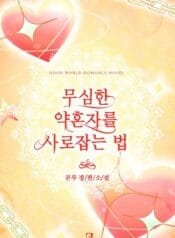Chapter 6.6
“At Mrs. Mars’s recital, Miss Maron is set to play the piano.”
The soft voice flowing into his ears broke Leonard’s train of thought. Edgar, raising his glass, looked at Leonard.
“You’ll come too, won’t you?”
Leonard thought of Edgar’s new lover, Miss Maron, whose shy smile suited her more than bold advances.
Would it be different this time?
Edgar Wharton was a riddle to Leonard.
While perspectives on appreciating art might vary, Leonard did not enjoy beauty for its own sake. To Leonard, art, literature, and even theater were puzzles.
The hidden meanings concealed within layers of metaphor, the meticulous intent behind the direction, and the process of uncovering those meanings — that was the joy Leonard pursued.
During their first meeting, Edgar found Leonard’s approach to theater intriguing.
“You’re like a mathematician who loves theater.”
Leonard thought no one understood his perspective. Whenever he spoke a few words, people looked at him as if he were an eccentric, so he chose silence. He waited for the tedious social season to end, smiling appropriately.
But the golden-haired man, who drew people to him, endlessly asked Leonard questions. Why, based on what, in connection with what — the conversation flowed endlessly, like solving a series of math problems.
After listening to Leonard ramble for a while, Edgar said in a cheerful tone:
“Leonard, you’re truly an interesting person. Will you be my friend? I like interesting people.”
Wherever he stood, it was as if the stage spotlight shone on Edgar’s blue eyes as they looked at Leonard.
Leonard saw himself reflected in those eyes. Words required a listener to be complete. Like an actor gaining a counterpart after a long monologue, Leonard felt a sharp sense of exhilaration.
It didn’t take long for Leonard to realize that exhilaration was Edgar Wharton’s way. He keenly discerned what others desired and captured them with his eyes. He made them feel that they were most perfect when reflected in those blue eyes.
This was why people followed Edgar Wharton like the Pied Piper.
“I’d like to introduce you to Miss Maron.”
Edgar Wharton once again threw out an enigmatic remark. Leonard pondered its meaning, like an audience struggling to understand a line’s subtext.
“She’s a delightful and lovely young lady.”
If Edgar Wharton were an actor, he delivered that line as if he were truly in love.
The excited tone in which Edgar spoke about Miss Maron made it unclear whether it was a deliberate act to present her as charming or an unrecognized truth.
In any case, Edgar’s words were true.
Miss Maron was a delightful young lady with a pure and quirky charm. She was an enjoyable conversationalist who listened attentively.
Just like the sender of the letters Leonard had received.
Could the Maron sisters resemble each other?
The drama unfolding before Leonard was full of mysteries. When he conversed with Sally Maron at the ball, it was hard to believe she was the sender of the letters.
“Macbeth? Of course, I know it. Isn’t it… the one about ‘To be or not to be’? Oh, that’s Hamlet? Then is it about avenging the father? Oh, that’s Hamlet too.”
Sally Maron was terrible at lying. Just a brief conversation was enough to reveal that she didn’t know Macbeth.
Thus, while Leonard liked Sally Maron, the sender of the letters, he couldn’t like the real Sally Maron.
It was an odd contradiction.
That contradiction peaked when Natalie Maron repeated the same words as the sender of the letters.
“I mean, I enjoy that passage.”
Leonard, as if demanding clues in a game of twenty questions, threw out his words.
“I’ve liked her since the day I received her letter.”
Yet the mystery remained unsolved.
When Leonard met Miss Maron again, she had a new lover by her side.
“Well… we’re not particularly close yet. She’s my lover.”
Standing before the inscrutable Edgar Wharton, Leonard was bewildered.
What had I missed?
The beautiful enigma that confounded Leonard smiled. Edgar, holding a glass in one hand, turned his gaze to the billiard table.
“Shall we play pocket billiards? It’s been a while.”
Leonard followed Edgar’s gaze to the triangularly arranged balls. The eight-ball, which would determine the winner, was placed in the center. Edgar handed the long cue to Leonard, his smile, with its slightly upturned red lips, seeming to lead Leonard into a dangerous gamble — just as on the day he had chosen the dull Leonard Salinger as his friend.
Leonard took the cue. The gentlemen who had been seated began gathering around the billiard table one by one. Edgar, having wetted his lips with a drink, placed his glass precariously at the edge of the table, where it could easily fall and shatter.
Leonard, staring at the fragile glass, leaned against the billiard table, his gaze intercepted by Edgar, who was looking directly at him.
“Start us off.”
The first shot was passed to Leonard. The ball struck by Leonard’s cue broke the triangular formation. Among the scattered balls, a single striped ball went into a pocket, assigning the striped balls numbered 9 to 15 to Leonard. Naturally, the solid balls numbered 1 to 7 became Edgar’s.
The game was simple: whoever pocketed all their assigned balls and then claimed the eight-ball would win.
Behind Leonard, voices buzzed with bets on who would emerge victorious. Ignoring the commotion, Leonard adjusted his grip on the cue. Edgar spoke up.
“Let’s bet on something too. It’d make things more fun, wouldn’t it? If I win, I’ll grant you a wish.”
Leonard, lowering his upper body, raised his head to look up at Edgar.
“Do you have a wish for me?”
Leonard’s dry question was met with a smile from Edgar.
“If I did, would you grant it?”
No one answered; only questions followed. Leonard shifted his gaze to the balls. At that moment, Edgar spoke.
“If I win, come to Mrs. Mars’s recital.”
The unexpected remark broke Leonard’s concentration. The cue ball missed its mark and failed to pocket any ball. Edgar, his face still holding a smile, laid down his cue.
“Miss Maron has been practicing diligently.”
Leonard couldn’t understand why Edgar spoke as if Miss Maron’s practice was for him. Meanwhile, Edgar leisurely struck the balls. The targeted ball slid smoothly into the pocket.
Edgar lifted his head to look at Leonard.
“And you?”
He was asking what Leonard wanted in return for victory. Leonard wished to solve the enigmatic puzzle before him.
“If I win…”
Leonard stared at the man who claimed to love no one, yet endlessly trapped people within his gaze.
“Tell me if you truly love Miss Maron.”
Leonard wanted to peer into Edgar’s heart through his eyes. The shimmering blue eyes always reflected others but never allowed anyone to see into them. While Edgar gave others what they desired, he left his own desires shrouded in ambiguity.
Thus, his lovers could only leave, never knowing whether he truly loved them.
Silence followed.
Edgar, quietly facing Leonard, curved his eyes gently, as if amused by Leonard’s attempt to decipher the meaning of a play.
“Alright, let’s do that.”
The balls collided and scattered in all directions. Edgar’s balls seemed to wander aimlessly around the pockets. Eventually, the turn passed to Leonard.
The two friends appeared evenly matched in skill. While their attitudes differed, the results were at least balanced. Leonard approached the game with a cautious seriousness, while Edgar seemed indifferent to winning or losing.
The eight-ball was not to be touched until one had pocketed all their assigned balls. Pocketing the eight-ball prematurely meant immediate loss.
Thus, when Edgar’s shots narrowly missed the eight-ball, everyone grew tense. In contrast to Leonard’s safe shots, Edgar consistently took risky ones.
Additionally, while Leonard had fully set his drink aside, Edgar watched the game leisurely, holding his glass. The gentlemen who had bet money on Edgar worried that he might become too drunk and make a mistake.
Their worries were justified.
Edgar accidentally pocketed one of Leonard’s striped balls. He handed over the turn to Leonard without gaining anything.
Leonard found Edgar’s mistake, which had given him a favorable opportunity, puzzling.
Was he drunk?
Leonard examined Edgar, but his calm face, devoid of any flush, didn’t appear intoxicated. Leonard aimed the cue at the ball and spoke.
“You shouldn’t touch someone else’s ball, Edgar.”
The cue struck the ball with a loud, forceful sound.
Edgar tightened his grip on the glass he had been holding loosely. The melted ice rattled faintly.
With Edgar’s mistake, the tide of the game shifted rapidly in Leonard’s favor. Soon, only the eight-ball remained.
“It’s completely Mr. Salinger’s game now.”
The gentlemen who had bet on Leonard began to feel triumphant prematurely. However, Leonard ultimately failed to pocket the eight-ball. When the cue ball veered off course and hit the cushion, the spectators sighed in disappointment.
All eyes turned to Edgar Wharton.
As Edgar lowered his upper body deeply, the gentlemen fell silent, tension thick in the air. Those who had bet on Leonard’s victory waited for Edgar to make another mistake.
With the crisp sound of the cue striking the ball, the last solid ball fell straight into the pocket. The cue ball, having stopped slowly, now aligned perfectly with the eight-ball. It was in an ideal position for an easy pocket.
As Edgar finally focused on the eight-ball, Leonard felt inexplicably deceived.
Had Edgar’s earlier mistake, pocketing my ball, been intentional?
That ball would have obstructed the eight-ball’s path. But now, with no obstacles remaining, Edgar claimed the eight-ball.
When the eight-ball smoothly fell into the pocket, the gentlemen cheered. It was a dramatic victory, far more thrilling than an easy win.
Surrounded by cheers, Edgar smiled, like an actor basking in applause after a dazzling climax.
Whether the mistake had been part of his strategy or not, Leonard had to admit Edgar’s knack for drawing attention. Edgar raised his glass amidst the cheers, drained the last sip, and cast a playful smile at Leonard.
“You’ll have to come to the recital now.”
Edgar patted Leonard’s shoulder affectionately.
Leonard was left with unanswered questions.
Was Miss Maron Edgar’s eight-ball? Someone he couldn’t touch before because she belonged to another, yet now had become his target?
But losers had no right to ask questions.







